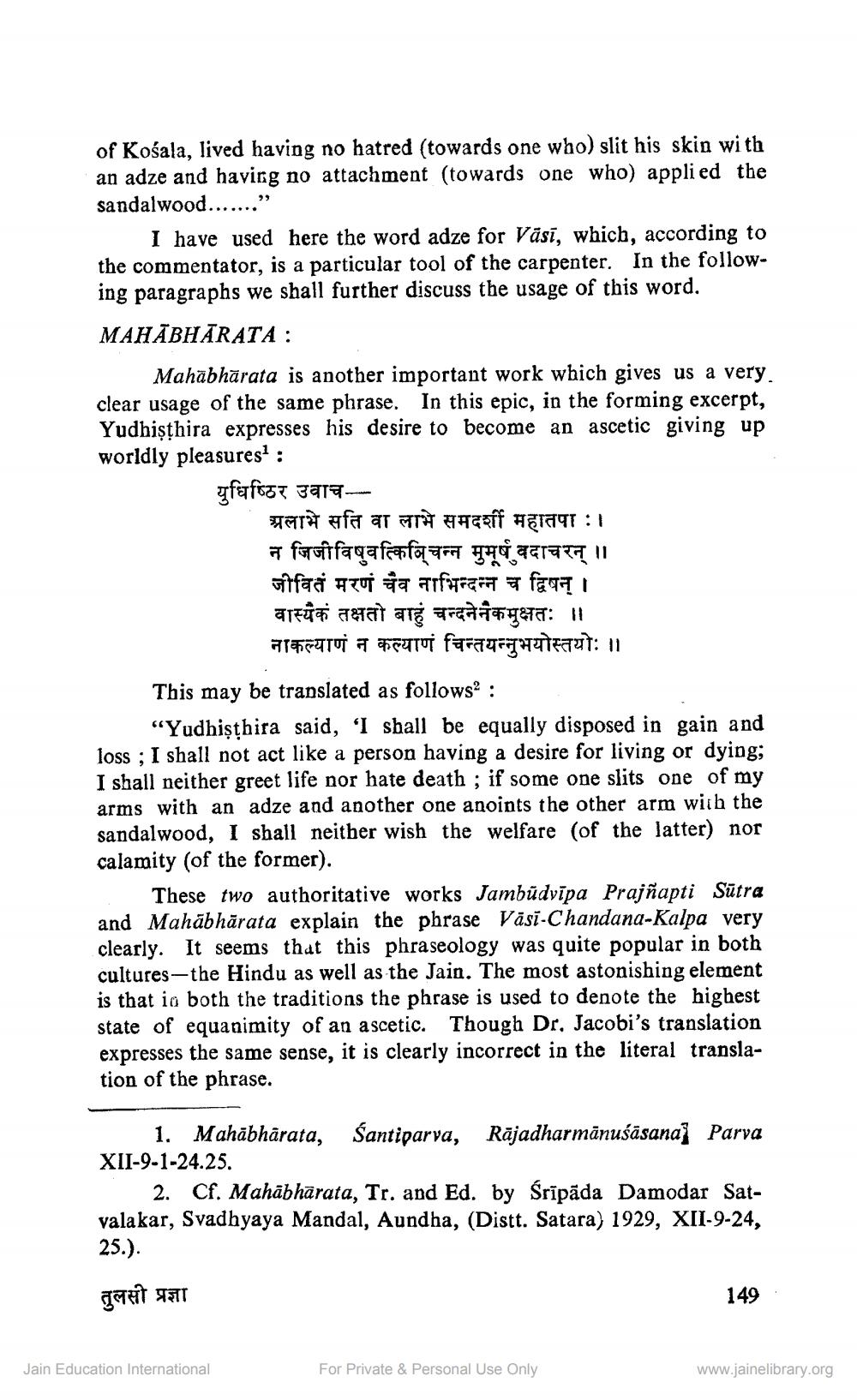________________
of Kosala, lived having no hatred (towards one who) slit his skin with an adze and having no attachment (towards one who) applied the sandalwood......."
I have used here the word adze for Väsī, which, according to the commentator, is a particular tool of the carpenter. In the following paragraphs we shall further discuss the usage of this word.
MAHABHARATA:
Mahabharata is another important work which gives us a very. clear usage of the same phrase. In this epic, in the forming excerpt, Yudhisthira expresses his desire to become an ascetic giving up worldly pleasures1:
युधिष्ठिर उवाच --
अलाभे सति वा लाभे समदर्शी महातपा : । न जिजीविषुवत्किञ्चिन्न मुमूर्षु वदाचरन् ॥ जीवितं मरणं चैव नाभिन्दन्न च द्विषन् । areâd agaì aig amàângea: 11 atseuroj a seuroj fazaqeguqÌeadt: 11
This may be translated as follows2:
"Yudhisthira said, 'I shall be equally disposed in gain and loss; I shall not act like a person having a desire for living or dying; I shall neither greet life nor hate death; if some one slits one of my arms with an adze and another one anoints the other arm with the sandalwood, I shall neither wish the welfare (of the latter) nor calamity (of the former).
These two authoritative works Jambudvipa Prajñapti Sūtra and Mahabharata explain the phrase Väsi-Chandana-Kalpa very clearly. It seems that this phraseology was quite popular in both cultures-the Hindu as well as the Jain. The most astonishing element is that in both the traditions the phrase is used to denote the highest state of equanimity of an ascetic. Though Dr. Jacobi's translation expresses the same sense, it is clearly incorrect in the literal translation of the phrase.
Jain Education International
1. Mahābhārata, Śantiparva, Rājadharmānuśāsana] Parva XII-9-1-24.25.
2. Cf. Mahābhārata, Tr. and Ed. by Śrīpada Damodar Satvalakar, Svadhyaya Mandal, Aundha, (Distt. Satara) 1929, XII-9-24, 25.).
तुलसी प्रज्ञा
For Private & Personal Use Only
149
www.jainelibrary.org




